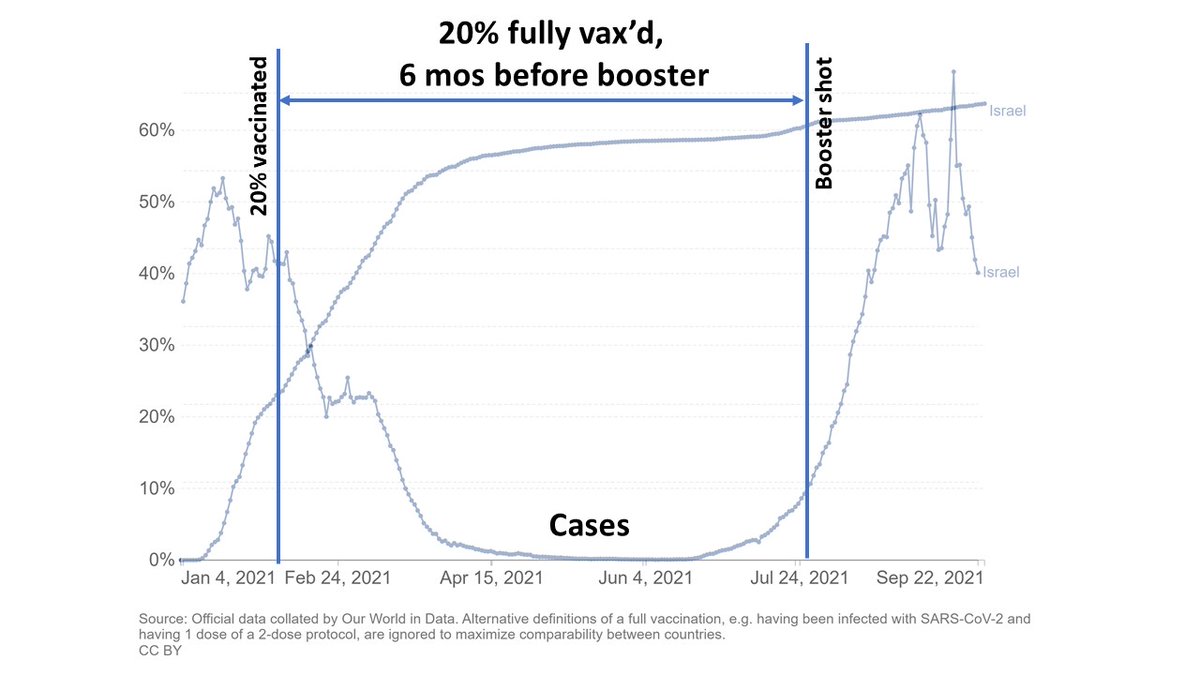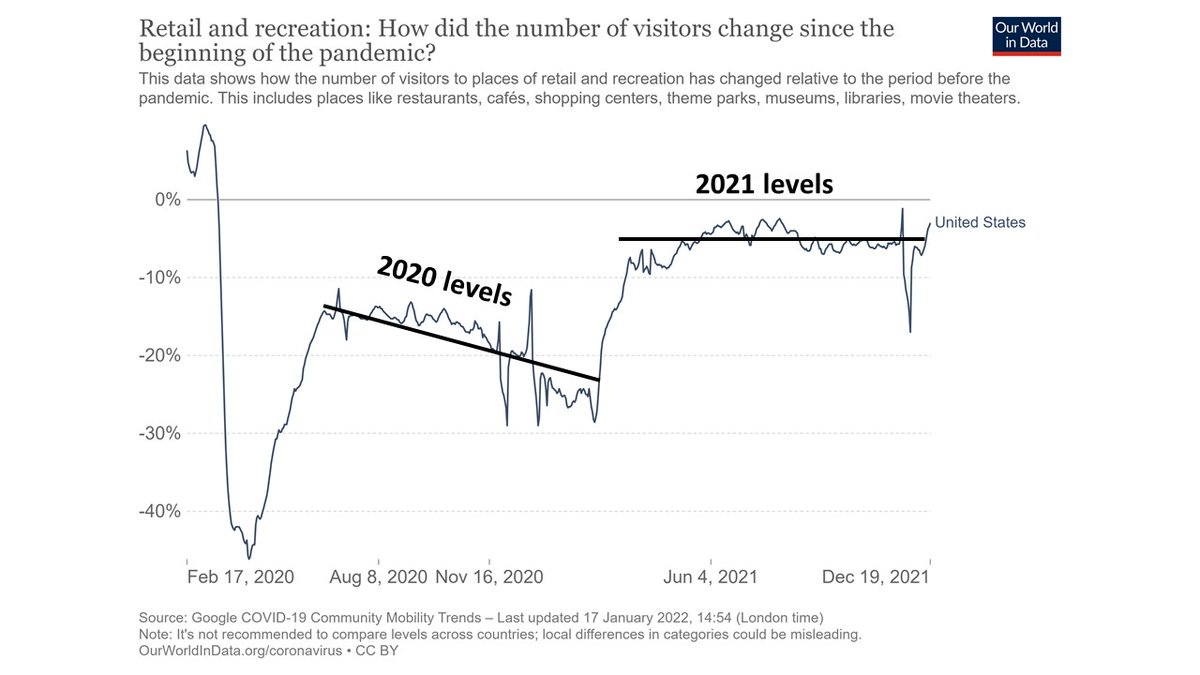I applaud the ACIP for taking a nuanced stance.
But am hearing lots of concern from vax'd under-65s who are worried their immunity will be gone 6 months after their 2nd shot.
To address this, let's take a tour of 2 populations of about the same size: Israel and Virginia.
But am hearing lots of concern from vax'd under-65s who are worried their immunity will be gone 6 months after their 2nd shot.
To address this, let's take a tour of 2 populations of about the same size: Israel and Virginia.

First, Israel. It's essential to debunk this myth:
"Israel vax'd its population first.
It now has high COVID rates.
Vax immunity must be waning."
This storyline has a lot of problems.
First, 50% vax coverage was only achieved 6 months ago (Mar 17), 4 mos before the surge.
"Israel vax'd its population first.
It now has high COVID rates.
Vax immunity must be waning."
This storyline has a lot of problems.
First, 50% vax coverage was only achieved 6 months ago (Mar 17), 4 mos before the surge.

So when the booster was made available in Israel on July 30, only 20% of its population had been fully vax'd for 6 months.
But at the time of the Israeli surge (July-Sept), most people had not been vax'd for >6 mos.
This surge was not caused by waning immunity.
But at the time of the Israeli surge (July-Sept), most people had not been vax'd for >6 mos.
This surge was not caused by waning immunity.

On Sept 1, 40% of Israel's population had received their 2nd dose within the last 6 months. Boosters had been available for 1 month.
Yet Israel had the highest case rate in the world that day.
All to say, this is not about waning immunity. It's about Israel being an outlier.
Yet Israel had the highest case rate in the world that day.
All to say, this is not about waning immunity. It's about Israel being an outlier.

Also, if it were all about waning immunity, we should be seeing cases start to rise in those parts of the world (US, Western Europe) that vaccinated next.
Yet the opposite is happening (see weekly change below. Those places are exactly where cases are falling. Without boosters.
Yet the opposite is happening (see weekly change below. Those places are exactly where cases are falling. Without boosters.

All to say, Israel is a unique context.
Now, let's go from 9 million people in the Middle East to 8.5 million in a state that voted twice for GW Bush but is now blue, and has vax + case rates similar to US median: Virginia.
Which should be more relevant to US policy?
Now, let's go from 9 million people in the Middle East to 8.5 million in a state that voted twice for GW Bush but is now blue, and has vax + case rates similar to US median: Virginia.
Which should be more relevant to US policy?
VA has a great dashboard of cases by vax status: bit.ly/3AIiOdi
All time, unvax'd people in VA have had 8x the case rate and 7x the hospitalization rate as fully vax'd.
Most recently (week of Aug 14)? Case rate 6x higher, hosp rate 8x higher. Basically the same.
All time, unvax'd people in VA have had 8x the case rate and 7x the hospitalization rate as fully vax'd.
Most recently (week of Aug 14)? Case rate 6x higher, hosp rate 8x higher. Basically the same.

And in the most recent weeks (with incomplete data), this is not letting up. The vax is working as well now in VA as it ever has.
Since vax became available, only 927 fully vax'd Virginians have been hospitalized. In a population the size of Israel. A 1 in 5,000 chance.
Since vax became available, only 927 fully vax'd Virginians have been hospitalized. In a population the size of Israel. A 1 in 5,000 chance.

All to say, if you've been fully vax'd, that vaccine is still working for you - very well.
All the more if you live in a place more like Virginia than Israel.
If you're >65 or have a weak immune system and want to get a booster, it's safe.
But otherwise, it's also OK to wait.
All the more if you live in a place more like Virginia than Israel.
If you're >65 or have a weak immune system and want to get a booster, it's safe.
But otherwise, it's also OK to wait.
• • •
Missing some Tweet in this thread? You can try to
force a refresh















